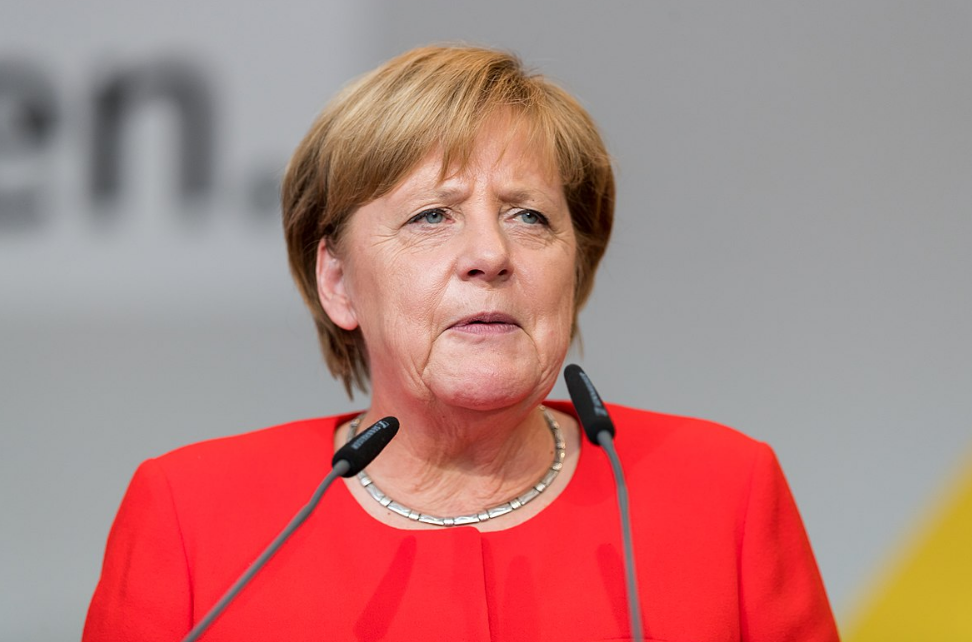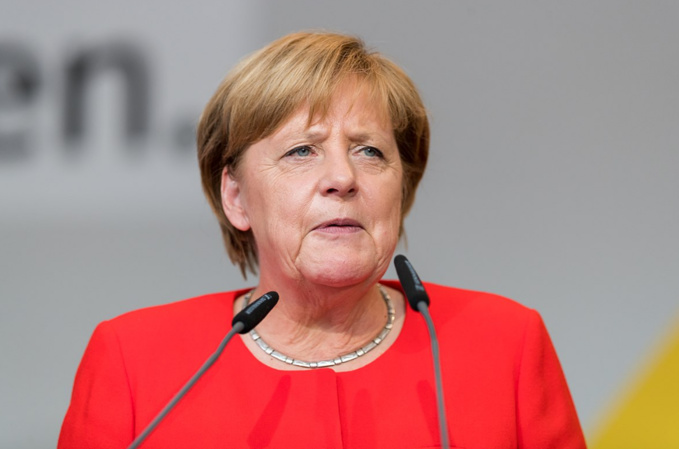After a long break related to solving internal problems, German Chancellor Angela Merkel is going back to the international arena. She commenced the New Year with a two-day visit to Greece, the first in five years. In Athens, she was received with protests. The protests were so stormy that the Greek police had to use tear gas against the demonstrators. In a week and a half, she will meet with Emmanuel Macron and sign an important agreement with him on further cooperation between Germany and France.
Having left her Christian Democratic Union and said that she leaves the post of federal chancellor in late 2021, Frau Merkel returned to the international arena after a year of serious internal problems. Moreover, in contrast to previous times, she has her hands free, because she does not need to think about pleasing the voters and winning the next elections.
“She got rid of the difficult political struggle in Germany,” Carsten Nickel, director of the consulting company Teneo, told Bloomberg. “This will allow her to concentrate on important issues of international life.”
In Athens, Angela Merkel is going to meet with the Prime Minister and the President of Greece, lay flowers, talk with students of the German University in Greece and attend other events. Such a rich program is very different from her last short visit in April 2014 and serves as a reminder of the geopolitical crises that made her the main politician of the Old World - the euro and migration crises. Greece is now out of the eight-year creditor assistance program and has begun to rebuild its crisis-ridden economy.
Merkel’s visit is also taking place against the background of disputes over the name of Macedonia, which are of great importance both for the expansion of NATO and for the fight of the West with Russia's growing influence in the Balkans. The German Chancellor supports the proposal to change Macedonia’s name, which will open her way to NATO and the European Union, we well as limit the influence of Moscow on the peninsula.
Mention of Macedonia’s name change is not accidental. Having dealt with internal affairs and returning to the international arena, Angela Merkel started fighting to preserve the postwar world order. In the remaining three years in power, she intends to fight populists and nationalists, as well as unpredictable behavior of Donald Trump. Two years of Mr. Trump in power in America, Angela Merkel is not tired of repeating dangers that his policy brings to world trade and security.
As for Europe, Frau Merkel wants to strengthen relations with France. The process began two months ago in Compiegne at a ceremony in honor of the centenary of the signing of the truce, which became the end of the First World War. The leaders of France and Germany defiantly embraced at the ceremony.
Angela Merkel considers the Franco-German alliance the foundation of European unity and stability despite the fact that she rejected most of President Macron’s proposals to strengthen European integration last year. On January 22, Angela Merkel and Emmanuel Macron will sign a friendship agreement between Germany and France in Aachen. The place for the important meeting was not chosen by chance. In the 9th century, Aachen was the center of the empire of Charlemagne, who created the Holy Roman Empire and symbolizes the unity of Europe. The treaty is an extension of the Treaty of Elysée on reconciliation and friendship, signed in 1963 by Charles de Gaulle and Conrad Adenauer. According to the Federal Republic of Germany and France, it should "raise bilateral relations to a new level."
One of the main goals of the new union will be gradual creation of a “Franco-German economic space with common rules”. According to German Foreign Minister Heiko Maas, the treaty is an appeal letter at a very difficult time for Europe when populists are trying to impose "national egoism."
In the New Year's address to the German people, Angela Merkel called nationalism the main threat to the world order. She is confident that the challenges of climate change, terrorism and migration can be dealt with, taking into account interests of other countries, and not thinking only about own interests.
"This is the lesson of the two world wars of the last century," said Chancellor Merkel in her speech. "However, today this idea is not shared by everyone."
source: dw.de, spiegel.de
Having left her Christian Democratic Union and said that she leaves the post of federal chancellor in late 2021, Frau Merkel returned to the international arena after a year of serious internal problems. Moreover, in contrast to previous times, she has her hands free, because she does not need to think about pleasing the voters and winning the next elections.
“She got rid of the difficult political struggle in Germany,” Carsten Nickel, director of the consulting company Teneo, told Bloomberg. “This will allow her to concentrate on important issues of international life.”
In Athens, Angela Merkel is going to meet with the Prime Minister and the President of Greece, lay flowers, talk with students of the German University in Greece and attend other events. Such a rich program is very different from her last short visit in April 2014 and serves as a reminder of the geopolitical crises that made her the main politician of the Old World - the euro and migration crises. Greece is now out of the eight-year creditor assistance program and has begun to rebuild its crisis-ridden economy.
Merkel’s visit is also taking place against the background of disputes over the name of Macedonia, which are of great importance both for the expansion of NATO and for the fight of the West with Russia's growing influence in the Balkans. The German Chancellor supports the proposal to change Macedonia’s name, which will open her way to NATO and the European Union, we well as limit the influence of Moscow on the peninsula.
Mention of Macedonia’s name change is not accidental. Having dealt with internal affairs and returning to the international arena, Angela Merkel started fighting to preserve the postwar world order. In the remaining three years in power, she intends to fight populists and nationalists, as well as unpredictable behavior of Donald Trump. Two years of Mr. Trump in power in America, Angela Merkel is not tired of repeating dangers that his policy brings to world trade and security.
As for Europe, Frau Merkel wants to strengthen relations with France. The process began two months ago in Compiegne at a ceremony in honor of the centenary of the signing of the truce, which became the end of the First World War. The leaders of France and Germany defiantly embraced at the ceremony.
Angela Merkel considers the Franco-German alliance the foundation of European unity and stability despite the fact that she rejected most of President Macron’s proposals to strengthen European integration last year. On January 22, Angela Merkel and Emmanuel Macron will sign a friendship agreement between Germany and France in Aachen. The place for the important meeting was not chosen by chance. In the 9th century, Aachen was the center of the empire of Charlemagne, who created the Holy Roman Empire and symbolizes the unity of Europe. The treaty is an extension of the Treaty of Elysée on reconciliation and friendship, signed in 1963 by Charles de Gaulle and Conrad Adenauer. According to the Federal Republic of Germany and France, it should "raise bilateral relations to a new level."
One of the main goals of the new union will be gradual creation of a “Franco-German economic space with common rules”. According to German Foreign Minister Heiko Maas, the treaty is an appeal letter at a very difficult time for Europe when populists are trying to impose "national egoism."
In the New Year's address to the German people, Angela Merkel called nationalism the main threat to the world order. She is confident that the challenges of climate change, terrorism and migration can be dealt with, taking into account interests of other countries, and not thinking only about own interests.
"This is the lesson of the two world wars of the last century," said Chancellor Merkel in her speech. "However, today this idea is not shared by everyone."
source: dw.de, spiegel.de



















